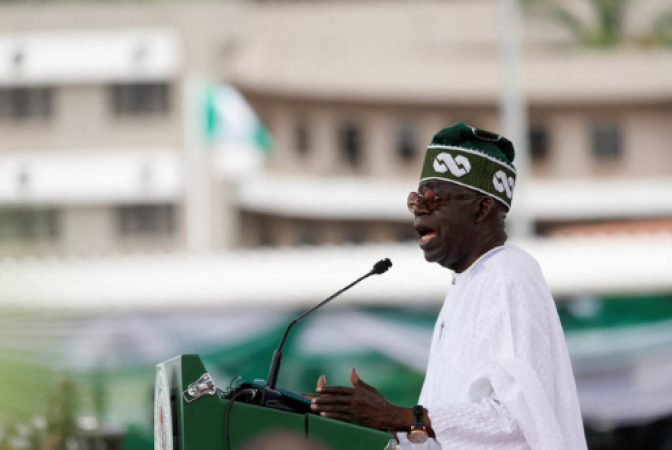
Abuja: In a significant development in Nigeria's political landscape, an appeals court has firmly dismissed challenges against the election victory of President Bola Tinubu.
The ruling underscores the resilience of the country's democratic institutions and sets the stage for President Tinubu to continue his tenure.
The court's decision, while a triumph for the incumbent president, also highlights ongoing concerns about electoral irregularities and the need for reform within Nigeria's electoral system.
The challenges to President Tinubu's election victory were brought forward by several opposition parties, including the Peoples Democratic Party (PDP), the Labour Party, and the African Action Congress.
These parties alleged a multitude of irregularities in the election process, ranging from ballot box stuffing to vote buying. Additionally, they questioned President Tinubu's qualifications to hold office, contending that he was not a Nigerian citizen and lacked the necessary academic credentials.
In a decisive ruling, the appeals court dismissed all of the challenges raised by the opposition parties. The judges concluded that the parties had failed to substantiate their claims with concrete evidence.
Also Read: PM Narendra Modi's Rousing Welcome by Indian Diaspora in Jakarta
Furthermore, the court affirmed President Tinubu's Nigerian citizenship and validated his academic qualifications, dispelling the doubts surrounding his eligibility.
The court's rejection of the challenges represents a significant victory for President Tinubu, solidifying his position as the elected president of Nigeria.
It reaffirms the legitimacy of his victory in a closely contested election, where he secured a margin of just over 30,000 votes. For the incumbent, this ruling signifies the preservation of his mandate and an opportunity to continue implementing his agenda for the nation.
On the other hand, the ruling deals a setback to the opposition parties that had pinned their hopes on overturning the election results. The legal challenges were viewed as a final recourse to challenge the outcome and change the course of Nigeria's political direction.
The court's dismissal of these challenges underscores the difficulties faced by the opposition in their efforts to unseat a sitting president.
The court's decision is bound to elicit mixed reactions within Nigeria. On one hand, supporters of President Tinubu will celebrate the confirmation of his electoral victory, viewing it as a validation of the people's choice.
On the other hand, those aligned with the opposition parties may express disappointment and frustration, believing that the challenges were based on legitimate concerns about the electoral process.
The ruling serves as a stark reminder that Nigeria's electoral system is not without its imperfections. Allegations of irregularities and electoral misconduct continue to persist, and the opposition parties' claims, even if dismissed in this instance, highlight the need for ongoing electoral reform.
Addressing these concerns is vital for strengthening the integrity of Nigeria's democratic processes and ensuring that elections are fair, transparent, and credible.
However, amidst these challenges, the ruling also reflects the maturation of Nigeria's democracy. The role of the judiciary in upholding the rule of law and ensuring a fair electoral process is pivotal.
The appeals court's decision reaffirms the importance of an independent judiciary in safeguarding the democratic principles enshrined in Nigeria's constitution.
While President Tinubu's victory has been upheld, it is evident that Nigeria's electoral system still requires improvement. The concerns raised by the opposition parties should serve as a catalyst for meaningful electoral reform.
Also Read: Greek Shipping Company Admits Guilt in Smuggling Iranian Crude Oil, Faces $2.4 Million Fine
Addressing issues such as voter intimidation, ballot box stuffing, and vote buying is essential to restoring public trust in the electoral process and ensuring that every citizen's voice is heard.
As Nigeria moves forward from this legal battle, the focus shifts to the future of its democracy. It is a reminder that democratic progress is an ongoing endeavor that requires constant vigilance and reform.
The ruling may mark a moment of triumph for President Tinubu, but it should also serve as a call to action for all stakeholders in Nigeria's political landscape to work collectively towards a more transparent and inclusive electoral system, ultimately strengthening the foundation of the nation's democracy.